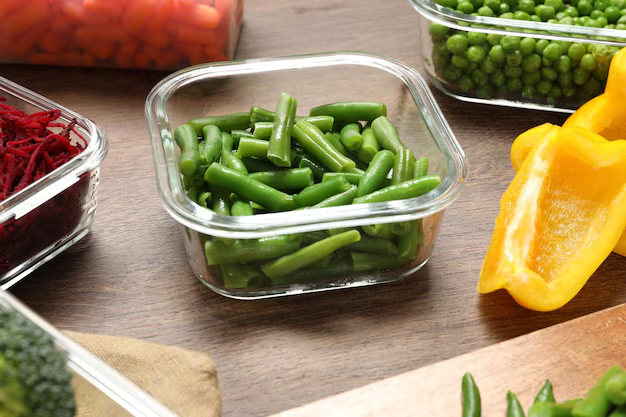How Fresh Can You Keep Your Beans? Discover the Shelf Life in Your Refrigerator
Beans are a staple in many households around the world, cherished for their versatility, nutritional profile, and affordability. As you create your favorite dishes, you might find yourself with excess beans and a pressing question: How long will these beans last in the refrigerator? This guide dives deep into the shelf life of beans once they're refrigerated, offering you thoughtful insights and practical tips for extending their freshness.
Understanding the Shelf Life of Beans
Beans come in various forms, including fresh, cooked, canned, and dry. Each of these types has a different shelf life and requires distinct storage methods. Let's explore how long each can last in the refrigerator:
Fresh Beans
Fresh beans, such as green beans or snap beans, are best stored in the fridge and typically last about 3 to 5 days. To maximize their freshness:
- Keep them dry: Moisture can accelerate spoilage. Store them in a perforated plastic bag to maintain optimal airflow while keeping humidity in check.
- Avoid washing them before storage: Washing adds unnecessary moisture. Clean them just before use.
Cooked Beans
When you cook beans, whether from dried or canned, their shelf life changes. Cooked beans generally last about 3 to 4 days in the refrigerator.
- Use airtight containers: Proper seals prevent exposure to air and bacteria.
- Cool before refrigerating: Let them cool to room temperature before placing them in the fridge to avoid condensation inside the container.
Canned Beans
Canned beans, when opened, should be transferred from the can and used within 3 to 4 days. Like cooked beans, they benefit from airtight storage.
- Glass over plastic: If possible, use glass containers. They don't absorb odors or colors like some plastics can.
Dried Beans
Though dried beans have an impressive shelf life, they do not require refrigeration until they're cooked. Stored in a cool, dry place, dried beans can last for years. Once prepared, however, treat them as cooked beans.
Recognizing Spoiled Beans
Knowing how to identify spoiled beans is crucial for your safety. Here's what to look for:
- Off-smell: Spoiled beans often emit a sour or unpleasant odor.
- Visual changes: Look for mold or a slimy texture.
- Flavor: If in doubt, taste a small portion. An off taste means they should be discarded.
Quick Tips for Extending the Shelf Life
- Freeze for longevity: If you can't use beans within their fridge lifespan, place them in freezer bags, removing as much air as possible. Cooked beans can last up to six months in the freezer.
- Labeling: Note the date on your containers or bags before refrigerating or freezing. It helps track freshness and reduce waste.
Beans in the Broader Context of Food Storage
Beans aren't the only food to be mindful of when it comes to storage in your refrigerator. Here are some cross-category tips:
Climate Control and Organization
Temperature Zones: Utilize different areas of your fridge. Beans and other leftovers should typically be stored on the middle shelves, where temperatures are consistent.
Fridge Organization:
- Avoid overcrowding: Air needs to circulate to ensure even cooling.
- Front and Center: Keep perishables in plain sight to remind you to use them first.
Common Bean Varieties and Their Storage Needs
Different bean varieties might require specific care:
- Black Beans: Rich in flavor, these are great for diverse dishes. After cooking, store them in airtight containers to preserve their taste and texture.
- Chickpeas: Having an increasingly popular demand, they require the usual storage care—cool, dry places for dried ones and proper sealing for cooked.
- Lentils: While technically not a bean, lentils follow similar storage protocols. They often come pre-washed, so ensure they're stored dry until use.
Eco-Friendly Storage Solutions
Consider these environmentally conscious options:
- Glass jars: Perfect for dry or cooked beans.
- Beeswax wraps: Can replace plastic wraps for fresh beans.
Practical Summary 🌿
Here’s a quick refresher on extending the life of your beans:
- Fresh Beans: 🌱 Allow them to last 3-4 days by keeping them dry and stored in perforated bags.
- Cooked Beans: 🍲 Use within 3-4 days, stored in airtight glass containers, cooled before refrigeration.
- Canned Beans: 🥫 Transfer from the can to a container and finish within 3-4 days.
- Going the Distance: ❄️ Freeze cooked beans for up to 6 months in airtight, stackable containers-with labels.
By mastering these guidelines, you ensure the life of your beans from field to fork extends as long as possible. We hope this guide empowers you to enjoy every bite of your bean-based dishes with confidence, knowing they're safe and flavorful!

